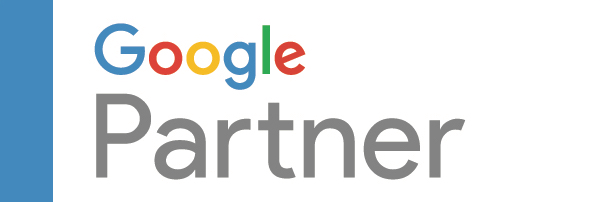Search Marketing Resources

Frequently Asked Questions
What are Google Search Ads?
Search ads appear next to Google search results and on other Google partner sites, like YouTube, when people look for businesses like yours. With a Search campaign, you can make sure potential customers notice your brand, consider your products, and take action.
What are Google Display Ads?
Google Display ads can appear across a network of more than two million sites and apps, reaching 90% of people on the internet. Your ads get matched to content related to your business or to your customers’ interests. Use a Display campaign to increase exposure and reach audiences with specific interests across the web.
What are Google Video Ads?
With Video ads, you can reach the right audience at scale and capture their attention. Show your ads on their own or within other streaming video content on YouTube and across Google’s network of websites and apps. Video campaigns help you bring your business’s story to life.
Google Search Network & Display Network – What is the difference?
Google Search Network is a group of search-related websites and apps where your ads can appear. When you advertise on the Google Search Network, your ad can show near search results when someone searches with terms related to one of your keywords.
The Display Network is a group of more than 2 million websites, videos, and apps where your Google Ads can appear.
Think of it as Search is pull advertising when someone searches for one or more of your products your search ad will appear.
Display ads are more push advertising where your ad is pushed to a specific audience in the Display network.
What is a Responsive Ad?
Responsive ads let you create an ad that adapts to show multiple versions of your ad. For display ads it will assemble an image/video, headline and description to match with what the customer is looking for. For Search it will choose from several headlines and description to match with what the customer is looking for.
Google will automatically test different combinations and learn which combinations performs the best. Some advantages are:
- They automatically optimize your inputs for more conversions.
- Broader reach with adjustable sizes to fit more placements.
- Pulls your website brand and colours.
- You can monitor the performance of each asset.
- Will display more often than image ads as they adjust to fit more placements.
Why you shouldn’t search and/or click on your own Ad?
It can be tempting, but it’s best to not search your ad and position. See the following reasons why.
- Some clicks can be expensive and will cost you money.
- If you click on the ad and then close the window, Google will register it as a bounce and this will decrease the quality score of the ad.
Do not search your ad even if you do not click on your own ad
- By doing a search that triggers your ad, you’ll get impressions without clicks this can lower your clickthrough rate and prevent your ad from appearing as often as it should.
- Your quality score will go down.
- If you look for your own ad using Google but never click on it, you might stop seeing it. Google stops showing you your ad because it thinks you aren’t interested in it.
- Google’s algorithm will start to think that the search is not relevant to the ad and it will cost more money to run the ad.
- The ad may stop showing up for your IP address because Google may decide that you are uninterested in the ad.
Can I expect my campaign to get results right away?
It takes time for your ad to gain relevance through Googles intent signals and machine learning. It usually takes up to a month to see any real results, it can take more time depending on competition, seasonality, traffic, and various other factors that Google takes into account.
Why do you think Search Marketing is important in digital marketing?
You can reach the right customer at the right time. Search Marketing shows results quickly as compared to organic campaigns and can be effective in advertising products that are difficult to find.

Glossary of Terms
Google Ads: Originally “Google AdWords.” Google’s online advertising platform that helps advertisers manage and maximize the performance of their advertising campaigns. There are several types of ads within Google Ads search, display, video, shopping and app.
Ad Rank: Ad rank is your position on the Google page and is determined by Quality Score.
Audience: Group of users with predefined demographics that you want to convert with your advertising campaign. It can also refer to the users who have completed specific actions such as visiting your website or shown interest in your services.
Click: The action of following a link to a website. For Search Marketing, this is precisely how many people click on the link to your landing page.
Cost-Per-Click (CPC): Amount you pay Ad Networks for a click on your ad that sends a visitor to your site.
Click-Through Rate (CTR): Ratio of the number of clicks against the number of times the ad was shown (impressions). It’s used to help you measure your advertising campaign’s performance.
Conversion: Any action you want your visitor to take that you deem is valuable, such as calling, filling in a form, signing up for a newsletter, or purchasing a product or service. For a Search Marketing campaign, generating more of a specific type of conversion is often the goal.
Impressions: How often your ad is shown. An impression is counted each time your ad is shown on a search results page or other site on the Google Network.
Landing Page: The webpage where people end up after they click your ad.
Google’s policy is that your landing page and display URL (the webpage shown in your ad) must share the same domain.
Your landing page experience is one of several factors that helps determine a keyword’s Quality Score. The experience of a landing page is represented by such things as the usefulness and relevance of information provided on the page, ease of navigation for the user, and how many links are on the page.
Quality Score: A ranking system with several disclosed and undisclosed factors that ad platforms use to determine the relevancy of keywords compared to their accompanying ads and the landing pages the ads link to. The more relevant the keywords your bid for are to your ad campaign, the higher your ad ranks, and the less the bids cost.
